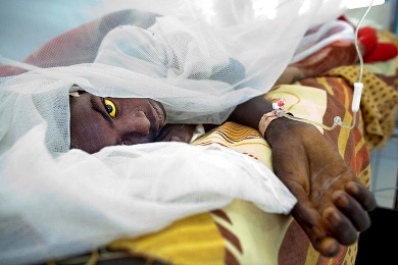North Darfur health official resigns to protest management of diarrhoea outbreak
August 1, 2017 (EL-FASHER) – A health official in the government of North Darfur State has resigned on Tuesday to protest the lack of transparency with the cases of Acute Watery Diarrhoea (AWD) in the region, adding that some areas are facing a shortage of medical staff amid increasing cases of the disease.

“The North Darfur State undersecretary for health is covering up the matter and does not respond to the demands of the teams dispatched to the area,” he further said pointing that the Kabkabiya hospitals face a “terrible shortage” of medical staff.
The resignation comes among unconfirmed reports that the Sudanese government refuse to declare a cholera outbreak and the country and describe it as an AWD epidemic.
AWD is a gastro intestinal disorder caused by bacteria, viruses and parasites. It is transmitted through unwise drinking and eating. While the cholera is caused by Vibrio cholera and transmitted not only through infected food and water but also through faecal vomiting, vomit and contaminated insects.
A North Darfur legislator last Sunday confirmed increased rates of watery diarrhoea in a number of localities in the western part of the state and called on the Ministry of Health to make efforts to reduce the spread of disease.
MP Bakal Abdallah Zakaria pointed that suspected cases do not find the needed care when they arrive at the hospital adding that sometimes they have to wait for three days before to meet the doctor, due to the lack of practitioners.
“Watery diarrhoea swept over the western localities of the state including Kabkabiya, Saraf Omra, El Sireaf, and part of Elwaha locality,” said the lawmaker in an interview with Sudan Tribune last Sunday.
He added they discussed the situation with the state minister of health and requested him to provide the medical teams dispatched to the affected areas with the needed means and to increase their number in some cases.
“Hospitals in these localities need medicine and an increase in the working staff. Also as the autumn is approaching, there must medical camps must be established (in the villages isolated by the floods) so the patients would receive the needed treatment despite the rains.
(ST)
